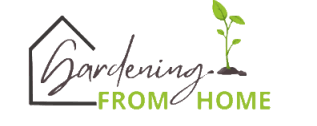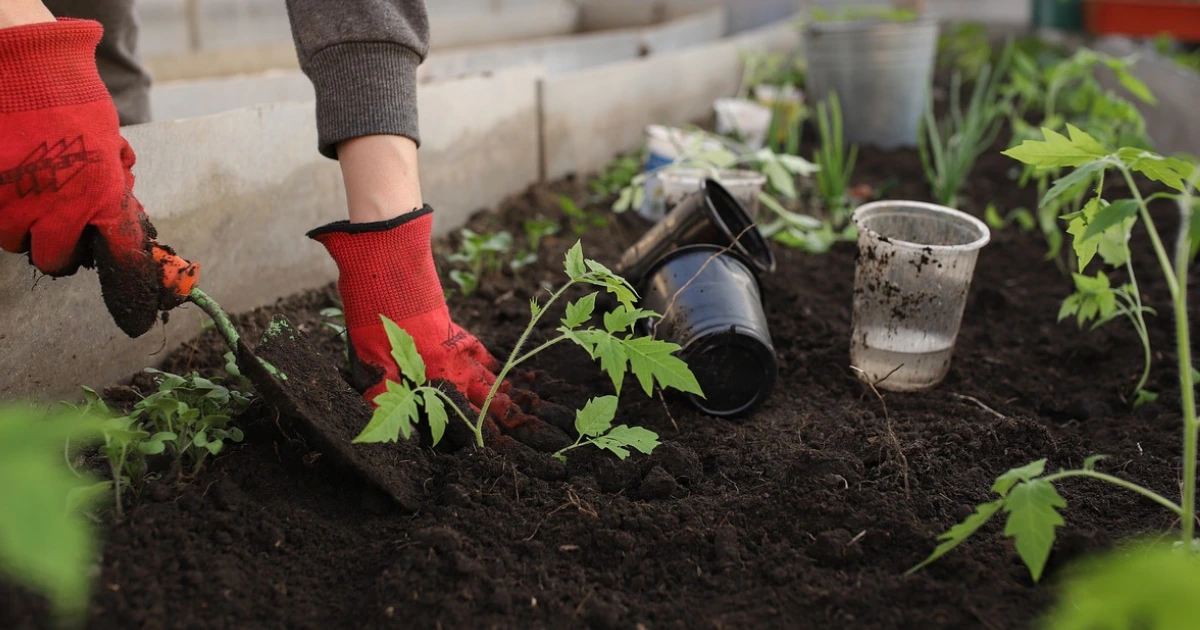How to Start a Garden ?
Gardening From Home : How to Start a Garden ?
Gardening is a rewarding hobby that gives you fresh produce, beautiful flowers, and a connection to nature.Starting a garden can feel overwhelming, particularly if you’re a beginner. This guide will assist you in creating and maintaining a flourishing garden, even if you’re a beginner. No matter the size of your space, you can grow your own plants.
Whether you have a small backyard, a balcony, or a sunny windowsill, gardening is within your reach.
By following the Gardening tips in this guide, you’ll learn how to turn your space into a vibrant, productive garden and learning How to Start a Garden for Beginners.
Key Takeaways
- Gardening is a fulfilling hobby that offers fresh produce, vibrant flowers, and a deeper connection to nature.
- This guide covers the essential steps for beginning gardeners, including tool selection, location planning, soil preparation, plant selection, and maintenance.
- With the right information and techniques, anyone can start and maintain a thriving garden, regardless of space constraints.
- The guide aims to help novice gardeners develop the necessary skills and knowledge to create a successful and sustainable garden.
- By following the guidance in this article, you’ll be well on your way to enjoying the benefits of growing your own plants.
Essential Gardening Tools and Materials You Need
Starting your gardening journey ? You’ll need the right tools and materials. From basic hand tools to soil amendments, we’ll cover the essentials. Let’s get you started on your gardening adventure.
Basic Hand Tools for New Gardeners
As a beginner, having the right tools is essential. A durable trowel is perfect for digging and planting, pruning shears are great for trimming, and gardening gloves are important to protect your hands.
- Trowel
- Pruning shears
- Gardening gloves
Soil and Amendment Essentials
Healthy, nutrient-rich soil is the heart of a good garden. Invest in quality compost for your soil. You might also need perlite or vermiculite for better drainage and aeration.
| Soil Amendment | Purpose |
| Compost | Adds organic matter and nutrients to the soil |
| Perlite | Improves soil drainage and aeration |
| Vermiculite | Enhances water retention and nutrient absorption |
How to Start a Garden for Beginners : Garden Planning Supplies
Before you start, plan your garden. Use graph paper and a measuring tape to map it out. This ensures your plants have enough space to grow.
- Graph paper
- Measuring tape
With these tools and materials, you’re ready to how to get into gardening and learn to garden like a pro. The right equipment and a good plan will help you create a beautiful garden. It will bring you lasting joy for many years.
Selecting the Ideal Spot for Your First Garden
Starting a garden is exciting, but picking the right spot is key. The location greatly affects your plants’ health. Here are important things to think about when picking the best spot for your first garden:
Sunlight Exposure
Most plants require a minimum of 6 hours of direct sunlight daily. Observe the sunlight patterns in your yard and choose a spot that provides the right amount of sunlight for your plants.
Soil Quality
Soil quality is crucial for gardening success. Test your soil to see its pH levels and nutrient content. If needed, add amendments to make the soil perfect for your plants.
Water Accessibility
Having easy access to water is important for keeping plants hydrated. Choose a spot close to a hose or spigot. This makes watering easier and ensures your plants get enough water.
Wind Protection
Strong winds can harm plants and disrupt the garden. Find a spot that’s protected from winds. This could be near trees or fences, or in a sheltered area of your yard.
Also, think about your yard’s size and layout, and how close it is to your home. With thoughtful planning, you can cultivate a garden that flourishes. It will bring you joy and a good harvest.
Understanding Soil Preparation and Garden Beds
Getting your garden ready and picking the right garden bed are key steps for beginners. Learning about soil health and garden bed types helps your plants grow well. The key is to create the optimal environment for your plants to thrive.
Testing Your Soil Quality
Testing your soil’s quality is a must before planting. It shows the soil’s pH, nutrient levels, and any problems. You can use a DIY kit or get a professional test for a detailed report.
Building Raised Beds vs. In-Ground Gardens
You have two main choices for garden beds: raised beds or in-ground gardens. Raised beds are great for better drainage and easier access. They let you control the soil. In-ground gardens might be cheaper and work well with good native soil.
Composting Basics for Beginners
Composting is an excellent way to enrich and improve your soil. It turns organic matter into nutrient-rich compost. Start with a compost bin and mix green and brown materials for the best compost.
Preparing your garden’s soil and choosing the right bed are key steps in gardening. Knowing these basics helps you grow a successful garden. You’ll enjoy fresh produce and feel proud of your work.
How to Start a Garden for Beginners : Plant Selection Guide
Choosing the right plants for your first garden can seem hard. But, with some advice, you can pick wisely. This guide will help you pick easy plants for beginners.
Factors to Consider When Selecting Plants
When picking plants for your first garden, think about these things:
- Climate – Know your local weather. Pick plants that match your area’s climate.
- Difficulty Level – Go for plants that are easy to grow. They’re best for beginners.
- Sun Exposure – Determine how much sunlight your garden receives and select plants that thrive in those conditions.
- Space Availability – Think about your garden’s size. Pick plants that won’t overcrowd it.
Recommended Plants for Beginner Gardeners
Here are some great plants for new gardeners :
- Vegetables : Tomatoes, zucchini, green beans, lettuce, and carrots are easy to grow. They give lots of food.
- Fruits : Strawberries, Blueberries, Raspberries, Figs, Melons, Apples…
- Herbs : Basil, parsley, mint, and chives are simple to grow. They make your food taste better.
- Flowers : Sunflowers, marigolds, and cosmos are easy to care for. They make your garden colorful.
Starting small and choosing the right plants is key for a good first garden. Be patient as you learn. With the right plants, you’ll enjoy a great gardening journey.
Maintenance Gardening Tips for a Thriving Garden
To keep your garden alive and growing, you need to water, control weeds, and manage pests. As a beginner, it’s key to learn good habits. These habits will help your plants stay healthy and grow well.
Watering Schedule and Techniques
It’s important to water your garden regularly. Most plants thrive when the soil is kept moist, not soggy. Water your garden during the cooler morning or evening hours.
Water deeply to encourage strong roots. This makes your plants more resistant to drought.
Weed Control Methods
Weeds can quickly take over if you don’t keep them in check. Pulling weeds by hand or using a hoe works well. Mulch around your plants helps stop weeds and keeps the soil moist.
Stay on top of weeding. This lets your plants grow without competition.
Pest Management Strategies
Pests like aphids, slugs, or caterpillars can harm your plants. Watch your garden for pests early on. Use natural pest control like picking pests off by hand or using neem oil.
Introducing beneficial insects like ladybugs or lacewings is also good. Avoid using harsh chemicals to ensure your garden stays healthy.
How to Start a Garden for Beginners : FAQ
What are the basic tools and materials I need to start a garden?
To start, you’ll need basic hand tools like a trowel and pruners. Don’t forget gardening gloves. You’ll also need soil amendments, like compost. Plus, get garden planning supplies, such as graph paper and measuring tapes.
How do I choose the best location for my first garden?
Choose a location with ample sunlight and nutrient-rich soil. Make sure it’s easy to water and protected from wind. Choose a location that fits your space and is close to your home.
What distinguishes raised beds from in-ground gardens?
Raised beds have better soil and drainage, great for beginners. In-ground gardens work well if your soil is good. Your choice depends on space and what you prefer.
How do I prepare the soil for my new garden?
Preparing the soil is key. First, test your soil to know its quality and pH. Then, add compost to improve its structure and nutrients.
What are some easy-to-grow plants recommended for beginners?
Start with easy plants like tomatoes, zucchini, and leafy greens. Herbs such as basil, parsley, and mint are great choices as well. They’re easy to care for and grow well even for beginners.
How do I maintain a healthy and thriving garden?
Keep your garden healthy with regular watering and weed control. Use organic pest control methods. Monitor soil moisture and remove weeds quickly to keep your garden thriving.


